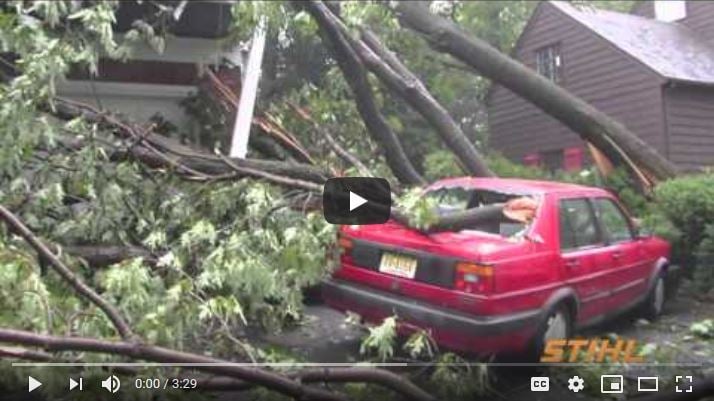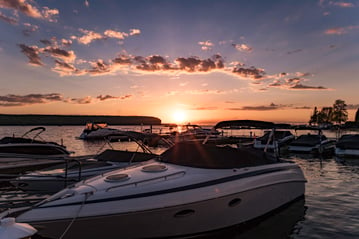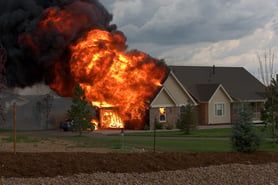 It’s no secret, the average age that adult children continue to rely on their parents for financial support has fluctuated greatly over the years. College has become astronomically expensive, apartments and cost of living are on the rise, and the burden of becoming financially independent forces many adult children to remain dependent on their parents well into their late 20’s and early 30’s. These complex living situations can expose coverage gaps with many personal insurance policies including Auto, Homeowners and Umbrella.
It’s no secret, the average age that adult children continue to rely on their parents for financial support has fluctuated greatly over the years. College has become astronomically expensive, apartments and cost of living are on the rise, and the burden of becoming financially independent forces many adult children to remain dependent on their parents well into their late 20’s and early 30’s. These complex living situations can expose coverage gaps with many personal insurance policies including Auto, Homeowners and Umbrella.
Personal Auto Policy
Exposure on the family’s Personal Auto Policy can be dependent on many factors; where the adult child lives, who a car is titled and registered to, and who is listed on the policy as a Driver, Named Insured, and Additional Named Insured.
On most traditional Personal Auto Policies, the definition of who has coverage includes "Family Members". Family members are typically limited to a “person related to you by blood, marriage or adoption who is a resident of your household”. When a specific vehicle is titled to and insured by the parents alone, but in possession of a child who is no longer a resident of the parents household, this can create a gap in coverage. If a vehicle is co-titled between the parent and child, or titled solely to the child, a gap in coverage can exist if the child isn’t properly listed as a Named Insured or Additional Insured on the parent’s policy. A gap in coverage can also exist if the child isn’t listed properly on a personal auto policy and is injured as a pedestrian or a passenger in another vehicle with inadequate insurance limits.
Homeowners Policy
Exposure on a family’s Homeowners policy can include the adult child’s personal contents and personal liability. Coverage can be dependent on where the adult child lives, their age, and their status as a part-time or full-time student. Contents can include clothing, furniture, electronics, sports equipment, and other personal belongings.
Most traditional Homeowners policies list the definition of an “insured” as “residents of your household who are your relative”, but typically extend coverage to addresses away from the primary home for “a student enrolled in school full-time, as defined by the individual school, and is under the age of…” Different companies have different age limits, but typically you can expect the limit to be somewhere between 24 and 29. This can present coverage gaps on personal contents and personal liability as many adult children are attending college and remaining dependent on their parents well into their 30’s. Part-time students living away from home can be exposed to the same coverage gaps. Additionally, most Homeowners policies have smaller defined limits for “personal contents away from the primary residence” creating a need for a separate Renters policy to adequately cover the adult child’s personal contents.
It is also becoming increasingly common for parents to provide a residence for their adult children, including renting them an apartment or purchasing them a home or condo. The parents may fund the purchase but the adult child is most typically the primary resident and coverage may not extend from the parents primary Homeowners policy. In many cases the adult child is the only name listed on the lease or deed which requires them to carry the primary insurance coverage.
Umbrella Policy
When coverage gaps exists on either Auto or Homeowners policies, these gaps can also translate to the family’s Umbrella policy on large losses creating a massive financial impact on both parents and the adult child. Even if the adult child currently has limited income or assets, courts have the ability to garnish future wages creating a long-lasting impact on the adult child’s financial future.
It is extremely important to understand coverage limitations and exclusions and discuss your unique family situations with a qualified Personal Insurance Consultant at R&R. We can explain coverage limitations, identify gaps, and present solutions to ensure that your all members of the family are properly protected. In many cases it is imperative that an adult child obtain their own Personal Auto Policy, Renters Policy, or Homeowners policy, and we can assist in finding the most affordable coverage to meet their needs.
Below are real-world examples of situations where coverage gaps may exist:
- Your adult child is not properly listed on a Personal Auto Policy and they borrow a friend's vehicle to run to the store. On the way, they hit a pedestrian crossing the road. Your child was unaware that the friend had no insurance on the vehicle and has no liability coverage for the injuries to the pedestrian.
- Your adult child is not properly listed on a Personal Auto Policy and rents a truck to move some furniture. They choose not to buy the insurance offered by the rental company. Again, there’s no coverage for property damage to the rented truck or bodily injury to others if there’s an accident.
- Your adult child is not properly listed on a Personal Auto Policy and is hit by an uninsured motorist while crossing the street. There are no medical payments or uninsured motorist's coverage for their own injuries.
- Your adult child is not properly covered on your Homeowners policy and has a fire at their rented apartment. There is no coverage for damage to their personal contents or liability for damage caused to other units in the building.
- Your adult child is not properly covered on your Homeowners policy and badly injures another golfer on the golf course. Since they have no liability coverage, there is no coverage for injuries to the other party.




 Have you thought about renting a boat on a hot summer day? Do you own a boat and want to make some extra money by renting it out? If the answer is “yes,” there are a few things you need to know first.
Have you thought about renting a boat on a hot summer day? Do you own a boat and want to make some extra money by renting it out? If the answer is “yes,” there are a few things you need to know first. don’t know how many of you like online reviews—I know I do. A huge benefit of the internet is having so many businesses available to research and review with just the click of a mouse. Everything from contractors and restaurants, to vacation destinations and new cars. You name it…you can find it. Years ago, the only thing you could rely on was word of mouth or a good referral from a friend or relative.
don’t know how many of you like online reviews—I know I do. A huge benefit of the internet is having so many businesses available to research and review with just the click of a mouse. Everything from contractors and restaurants, to vacation destinations and new cars. You name it…you can find it. Years ago, the only thing you could rely on was word of mouth or a good referral from a friend or relative.  Whether we're ready for it or not, winter weather is upon us. And with colder temps comes an obvious increase in the use of fireplaces. For many of us, our fireplaces/chimneys haven't been touched in months. However, c
Whether we're ready for it or not, winter weather is upon us. And with colder temps comes an obvious increase in the use of fireplaces. For many of us, our fireplaces/chimneys haven't been touched in months. However, c With Labor Day behind us and cooler temps in the future, it's time to think about storing those summer toys. From convertibles and boats, to motorcycles and jet-skis, unfortunately certain vehicles just aren't suited for Wisconsin winters. Below is a small tip for winterizing your car that can save you from a big claim next summer.
With Labor Day behind us and cooler temps in the future, it's time to think about storing those summer toys. From convertibles and boats, to motorcycles and jet-skis, unfortunately certain vehicles just aren't suited for Wisconsin winters. Below is a small tip for winterizing your car that can save you from a big claim next summer. Insurance needs are often overlooked for college kids in the hustle and bustle of preparing for college. It's not uncommon for college kids to have thousands of dollars of electronic equipment and a closet bursting with clothes in the dorm rooms, as well as bicycles and instruments.
Insurance needs are often overlooked for college kids in the hustle and bustle of preparing for college. It's not uncommon for college kids to have thousands of dollars of electronic equipment and a closet bursting with clothes in the dorm rooms, as well as bicycles and instruments. 80% of Homeowners Overlook Costly Water Leak Exposure When Heading on Vacation
80% of Homeowners Overlook Costly Water Leak Exposure When Heading on Vacation